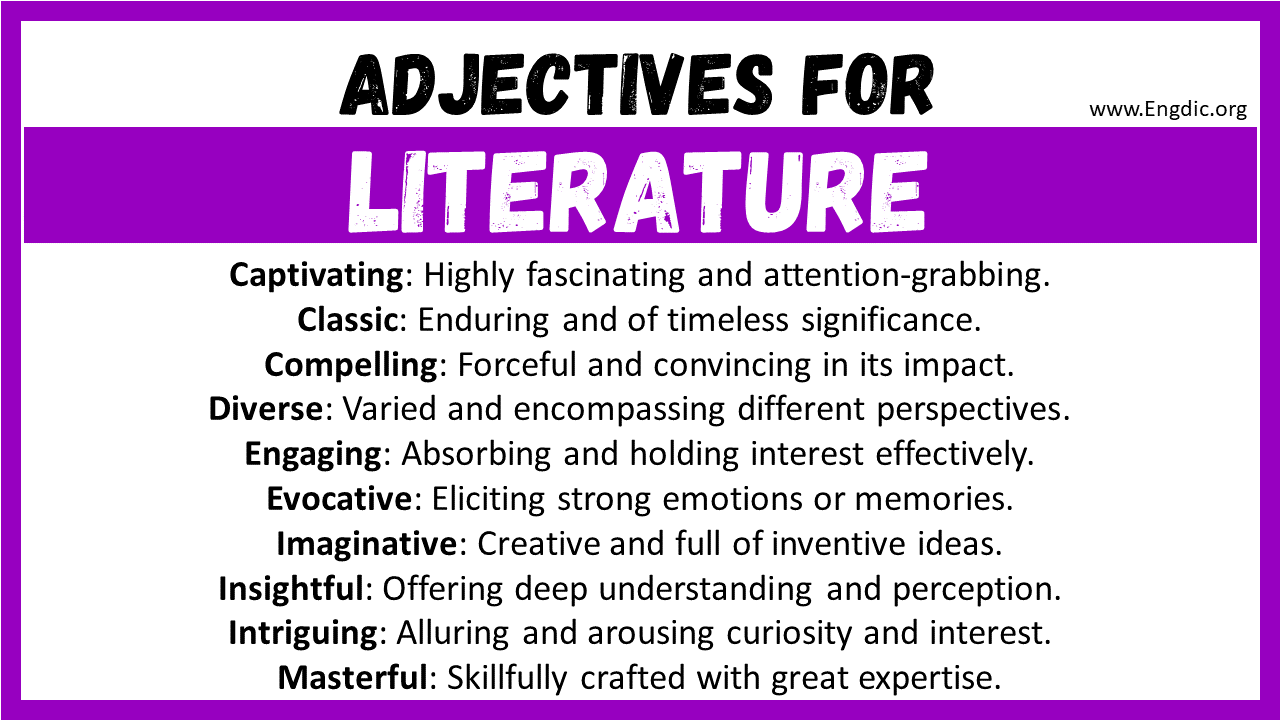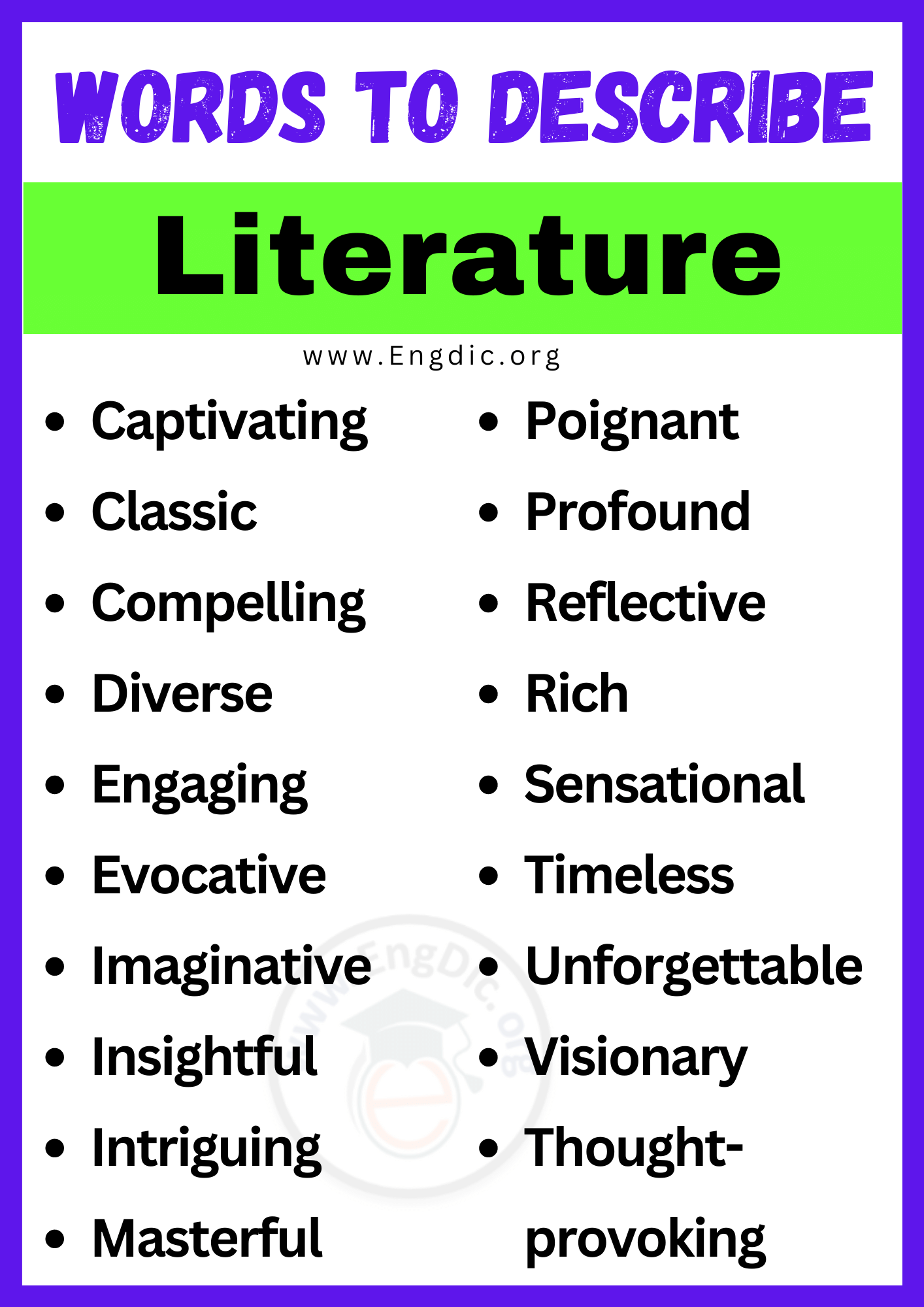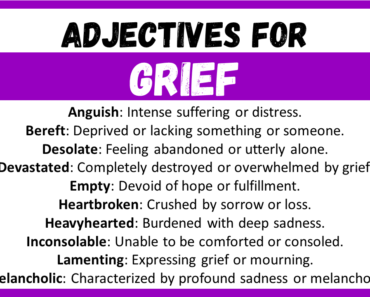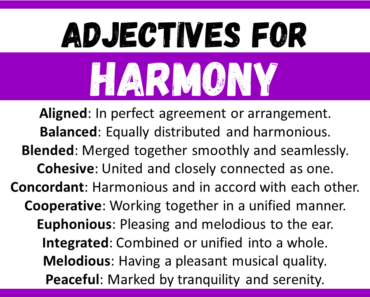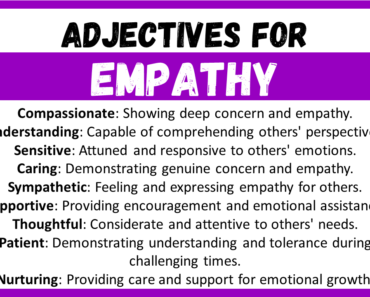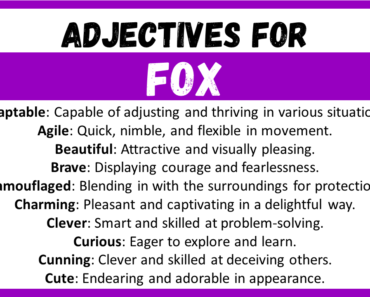Literature, in its simplest form, encompasses written or spoken works that possess artistic value and are meant to provoke emotions, thoughts, and imagination. It serves as a medium for storytelling, expressing ideas, and documenting the human experience. As we delve into the world of literature, we encounter a vast array of words that aptly describe its essence. From evocative and poignant to captivating and thought-provoking, these words encapsulate the profound impact of literature on our minds and hearts, making the reading journey an unforgettable one.
Adjectives for Literature
Here are the 20 Most Popular adjectives for literature:
- Captivating
- Classic
- Compelling
- Diverse
- Engaging
- Evocative
- Imaginative
- Insightful
- Intriguing
- Masterful
- Poignant
- Profound
- Reflective
- Rich
- Sensational
- Timeless
- Unforgettable
- Visionary
- Witty
- Thought-provoking
Adjective For Literature Review
- Comprehensive
- Thorough
- Systematic
- Analytical
- Critical
- In-depth
- Scholarly
- Objective
- Well-structured
- Informative
Words to Describe Literature with Meanings
- Captivating: Highly fascinating and attention-grabbing.
- Classic: Enduring and of timeless significance.
- Compelling: Forceful and convincing in its impact.
- Diverse: Varied and encompassing different perspectives.
- Engaging: Absorbing and holding interest effectively.
- Evocative: Eliciting strong emotions or memories.
- Imaginative: Creative and full of inventive ideas.
- Insightful: Offering deep understanding and perception.
- Intriguing: Alluring and arousing curiosity and interest.
- Masterful: Skillfully crafted with great expertise.
- Poignant: Emotionally touching and profoundly moving.
- Profound: Deep and having great intellectual depth.
- Reflective: Thoughtful and contemplative in nature.
- Rich: Abundant in detail and complexity.
- Sensational: Strikingly impressive and outstanding.
- Timeless: Enduring and relevant across generations.
- Unforgettable: Leaving a lasting and memorable impression.
- Visionary: Forward-thinking and imaginative in scope.
- Witty: Clever and amusingly perceptive in expression.
- Thought-provoking: Stimulating and encouraging deep contemplation.
Example Sentences for Literature Adjectives
- The captivating novel kept me up all night.
- Shakespeare’s plays are considered classic works.
- The documentary presented a compelling argument.
- The anthology features diverse literary voices.
- The engaging story had a surprising twist.
- The painting’s colors were evocative of nature.
- Her imaginative tales enchanted the children.
- The book provided insightful analysis on history.
- The mysterious stranger had an intriguing past.
- The artist’s brushwork demonstrated masterful skill.
- The movie’s ending was incredibly poignant.
- The philosopher’s ideas were profound and influential.
- His reflective essay pondered life’s mysteries.
- The novel offered a rich description of the city.
- The concert received a sensational response from the crowd.
- Shakespeare’s themes are timeless and relatable.
- The vacation was an unforgettable experience.
- The scientist had a visionary approach to research.
- Her witty remarks always made everyone laugh.
- The artwork was thought-provoking, leading to deep discussions.
Explore More Words:
FAQ’s
How to describe literature in writing?
Literature can be described in writing as a collection of artistic and meaningful written or spoken works that convey stories, ideas, and emotions, providing insights into the human experience.
Is literature a noun or adjective?
Literature is a noun, as it refers to a body of written or spoken works, such as novels, poems, and plays, that are considered to have artistic value and cultural significance.
Is Literacy an adjective?
No, literacy is not an adjective. It is a noun that denotes the ability to read and write, as well as the overall competence and knowledge in using language and written communication.
